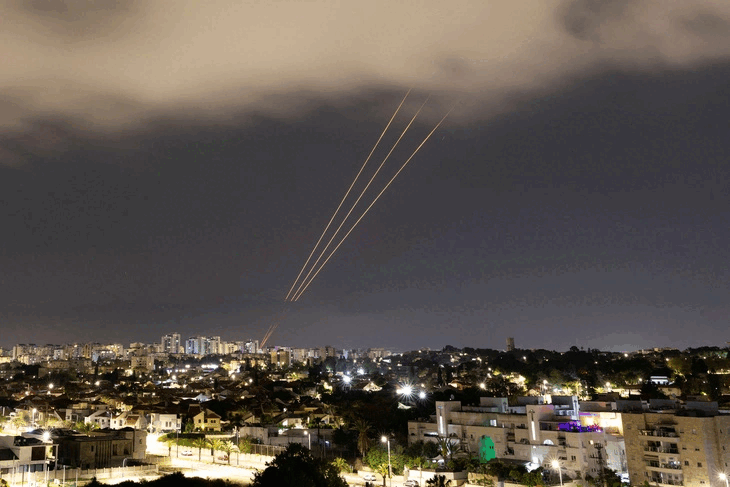Iran's permanent mission to the United Nations announced on Tuesday that its military action against Israel was based on Article 51 of the UN Charter, in response to Tel Aviv's recent bloody attack on Iran's diplomatic compound in the Syrian capital Damascus.

In a statement quoted by the official IRNA news agency, Iran's permanent mission to the United Nations cited Article 51 of the UN Charter, which allows for legitimate self-defense, to defend its retaliatory drone attack on Israel on the night of April 13 (early morning of April 14, Vietnam time).
Iran's mission to the UN also said that if the Security Council had condemned Israel's attack on the consular building in the Iranian Embassy in Syria and then prosecuted the perpetrators, Iran's retaliation against Israel might have been avoided.
The statement mentioned that the three countries of the United States, Britain and France as well as their allies not only failed to condemn Israel's attack on Iran's consulate in Syria but also prevented the UN Security Council from issuing a statement on this attack.
The official IRNA news agency said that “Israel’s most important air base in the Negev desert was successfully targeted by Kheibar missiles,” adding that “images and data show that the base suffered heavy attacks.”
Israel Defense Forces (IDF) spokesman Daniel Hagari said on April 14 that dozens of ballistic missiles were launched during Iran's attack, some of which fell into Israel, "causing minor damage" to a military base in the South.
Hagari added that most of the Iranian missiles were intercepted by the Arrow long-range defense system and fell outside Israeli territory. In addition, Israeli fighter jets also successfully intercepted dozens of Iranian cruise missiles and unmanned aerial vehicles (UAVs).
Mr. Hagari said that in total, Iran had launched more than 200 objects towards Israel, but noted that the attack was not over yet.
Channel 12 TV reported that on April 14, Israel's War Cabinet was given the authority by the country's Security Cabinet to decide on responses to Iran's attack.
This means that the War Cabinet – consisting of three members: Prime Minister Benjamin Netanyahu, Defense Minister Yoav Gallant and former Army Chief Benny Gantz – will not need to consult the Security Cabinet before taking retaliatory actions against Iran.
Earlier, Israeli Defense Minister Yoav Gallant had a phone call with his US counterpart Lloyd Austin to “inform about upcoming responses to Iran's attack”.
Also on April 14, two regional security sources said the Jordanian air force intercepted and shot down dozens of Iranian drones that violated the country's airspace while en route to Israel.
The sources added that the Jordanian military is also on high alert and radar systems are monitoring all drone movements coming from Iraq and Syria.
Residents in several cities in northern Jordan near Syria as well as central and southern regions heard loud explosions in the air.
In areas south of the capital Amman, 60 km from Jerusalem, several drones were seen being shot down.
People also gathered around the wreckage of a large drone that is believed to have crashed in a commercial area in the Amman suburb of Marj al Hamam.
A security source said earlier that the Jordanian air force was increasing reconnaissance flights.
Jordan said it had closed its airspace to all incoming, outgoing and transit aircraft starting on the evening of April 13, amid heightened regional tensions after Iran threatened to retaliate against Israel for an airstrike on its consulate in Damascus, Syria. Jordan is located between Israel and Iraq, which borders Iran.
TN (Synthesis)